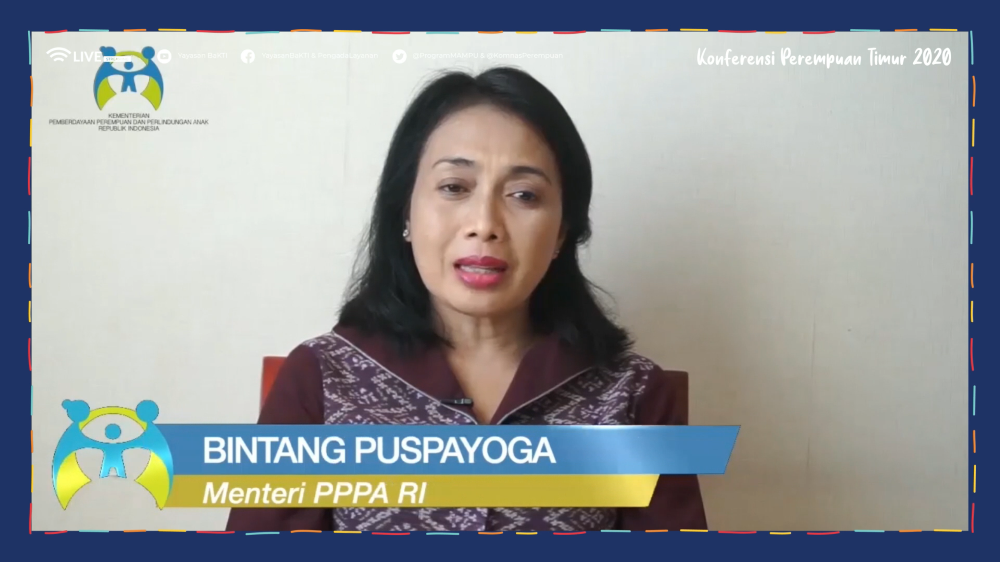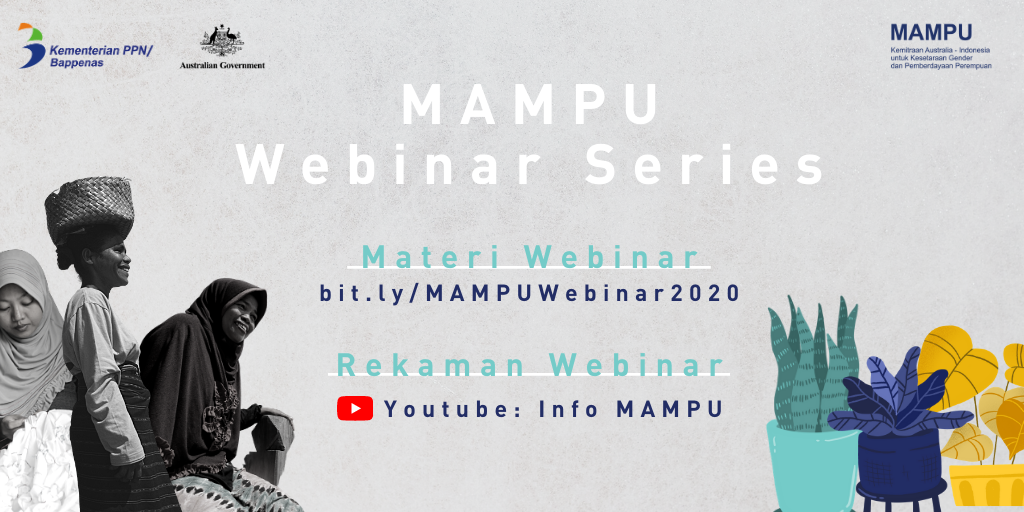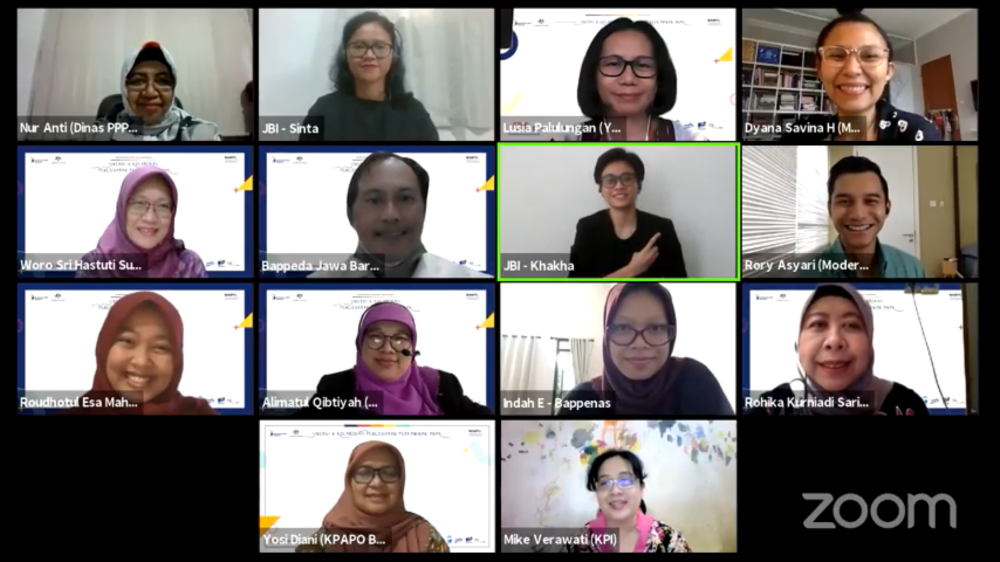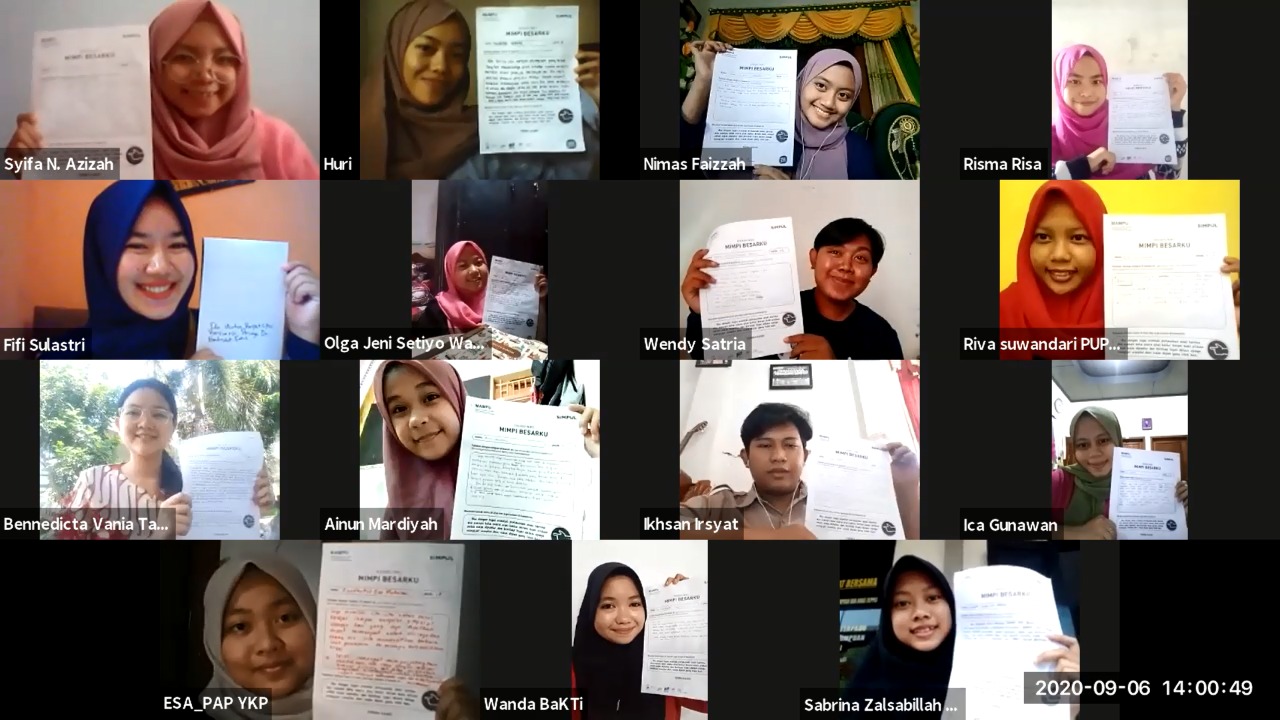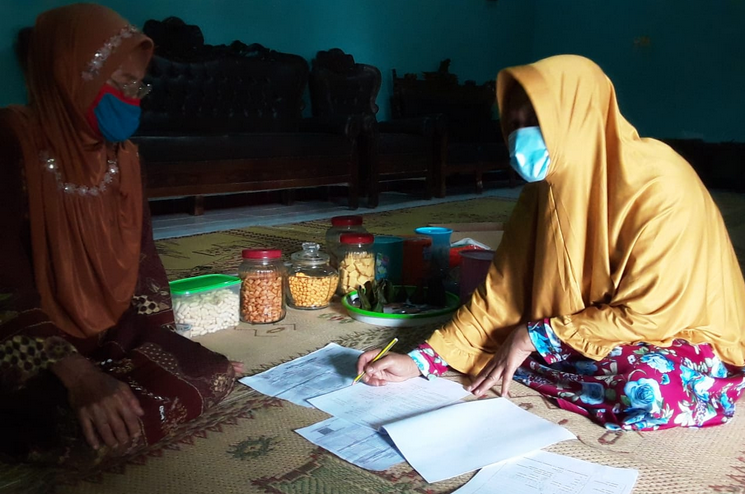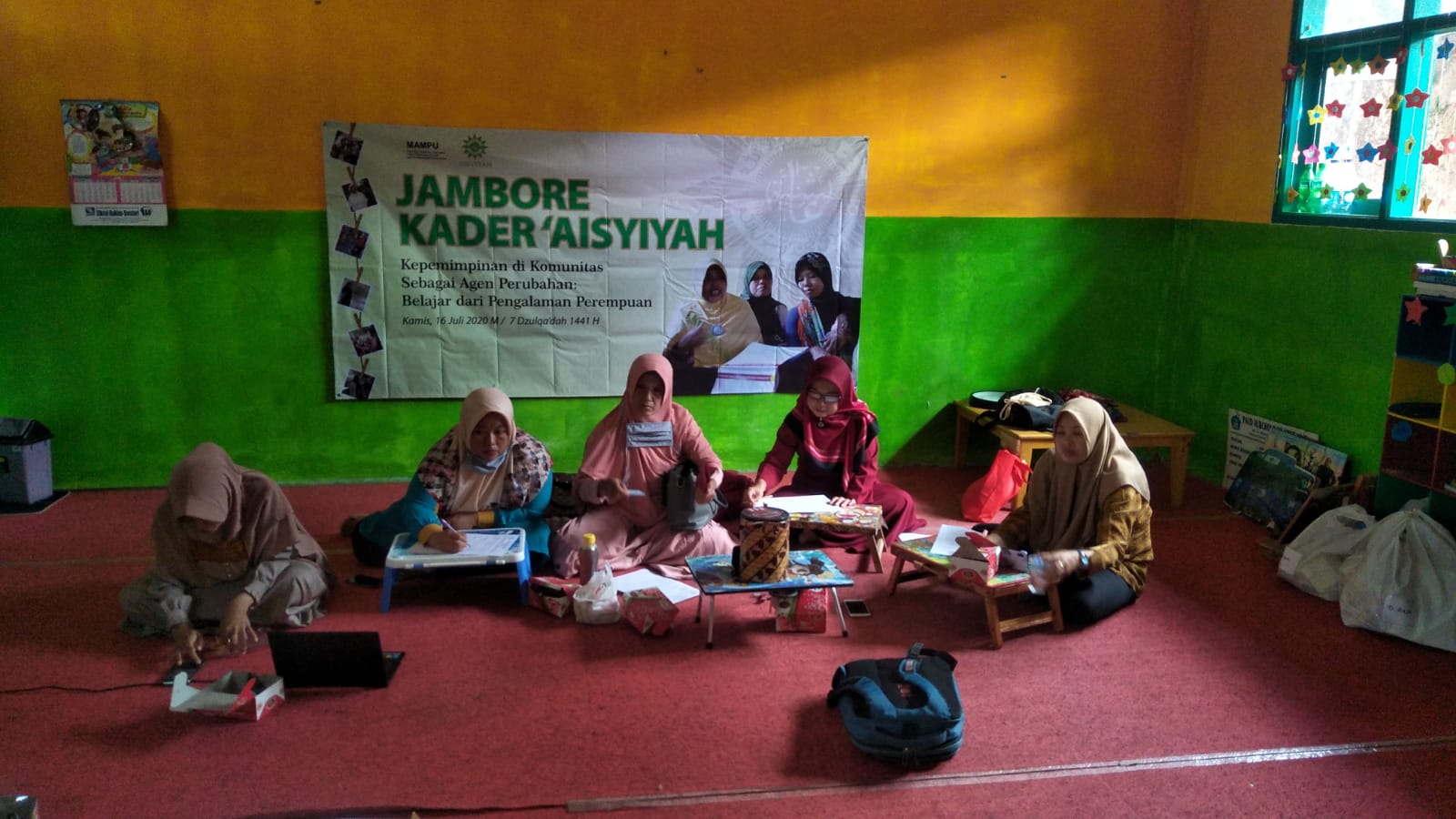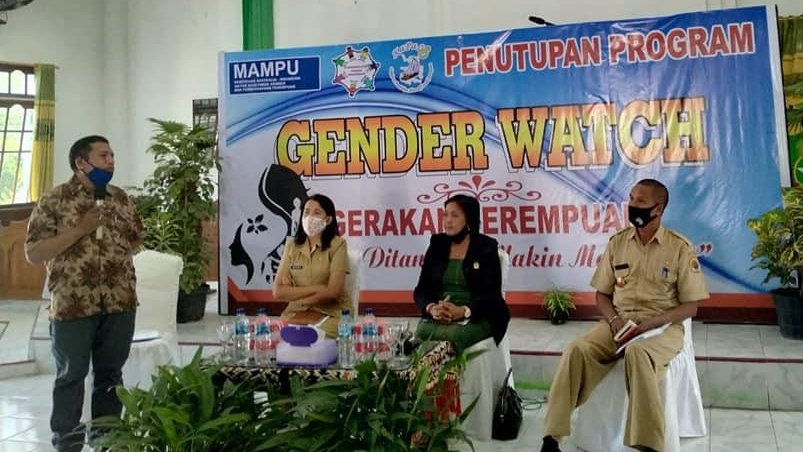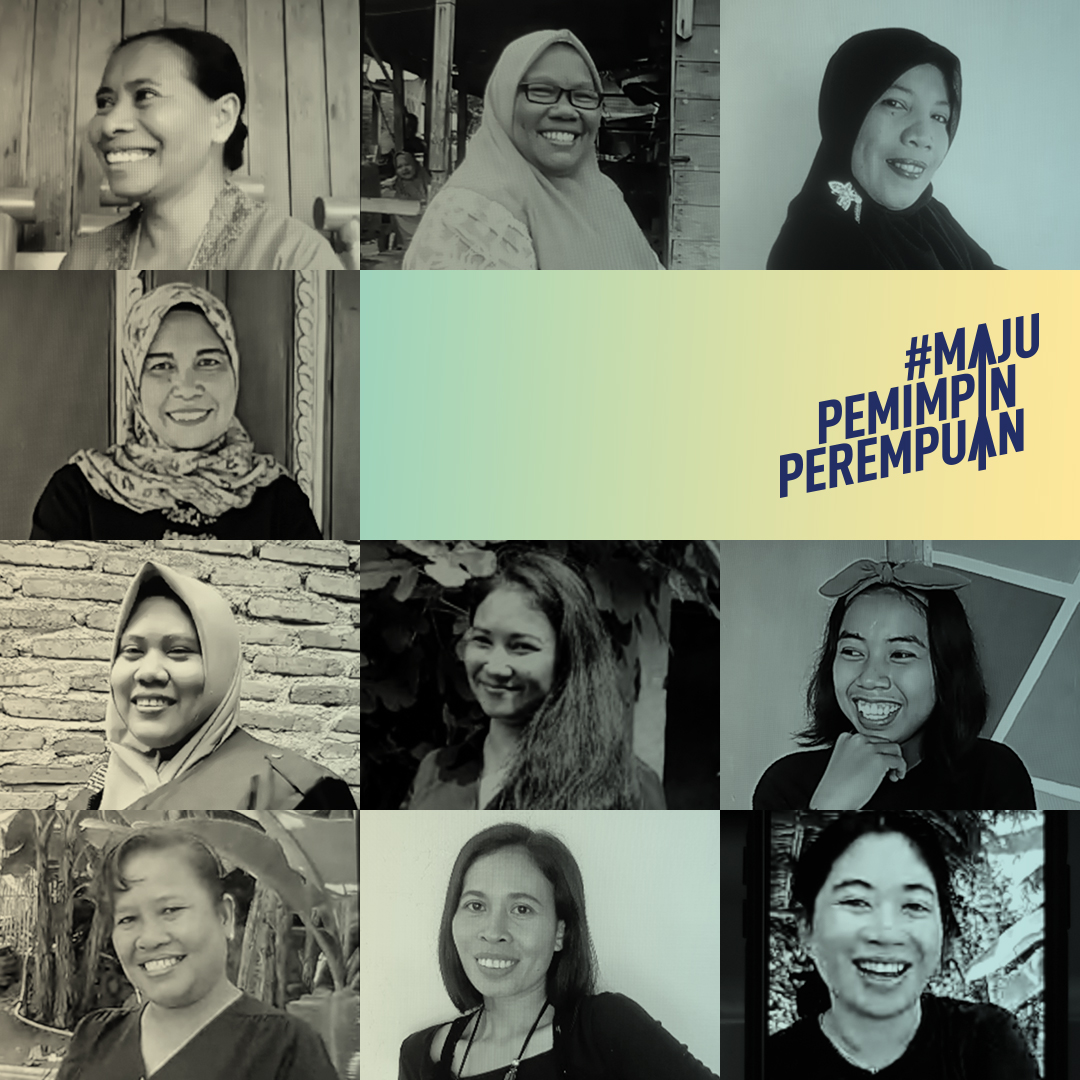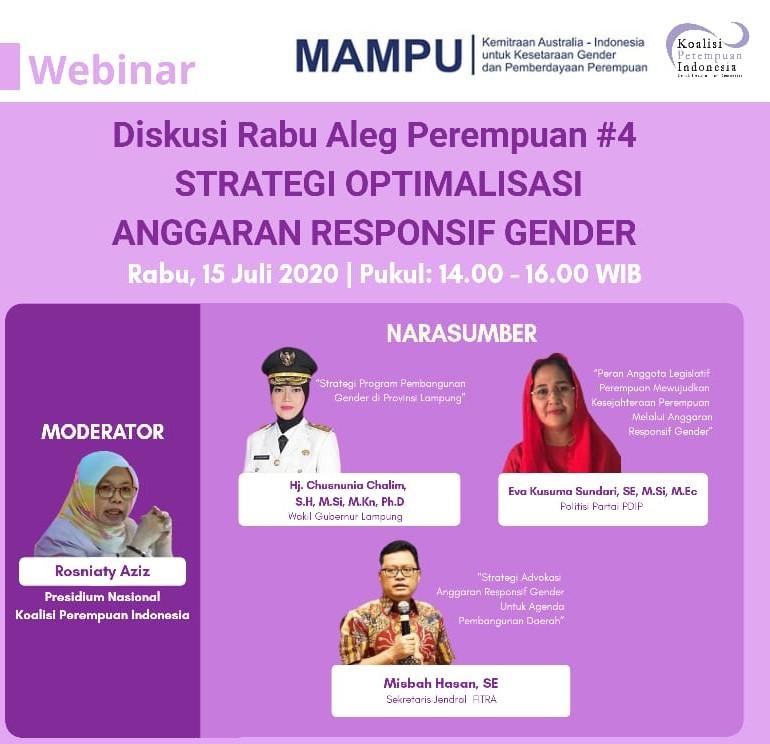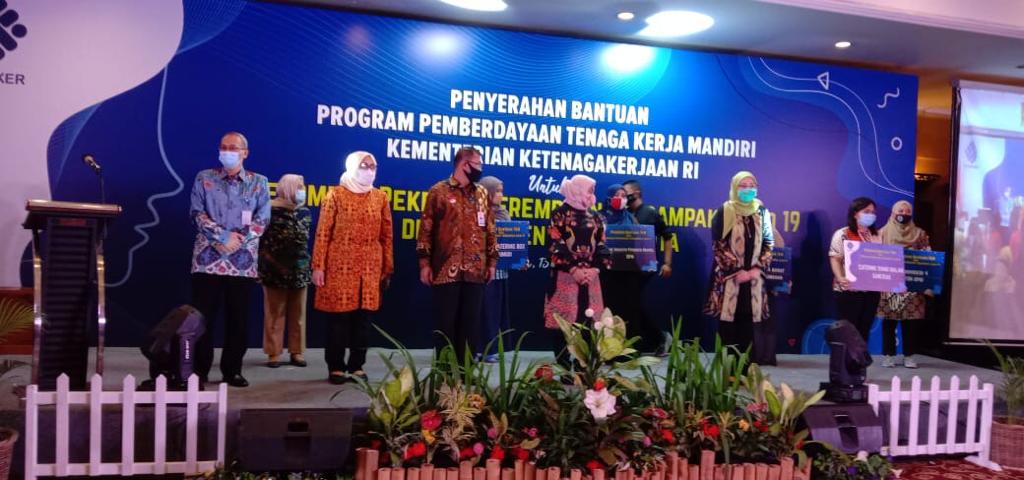Stories
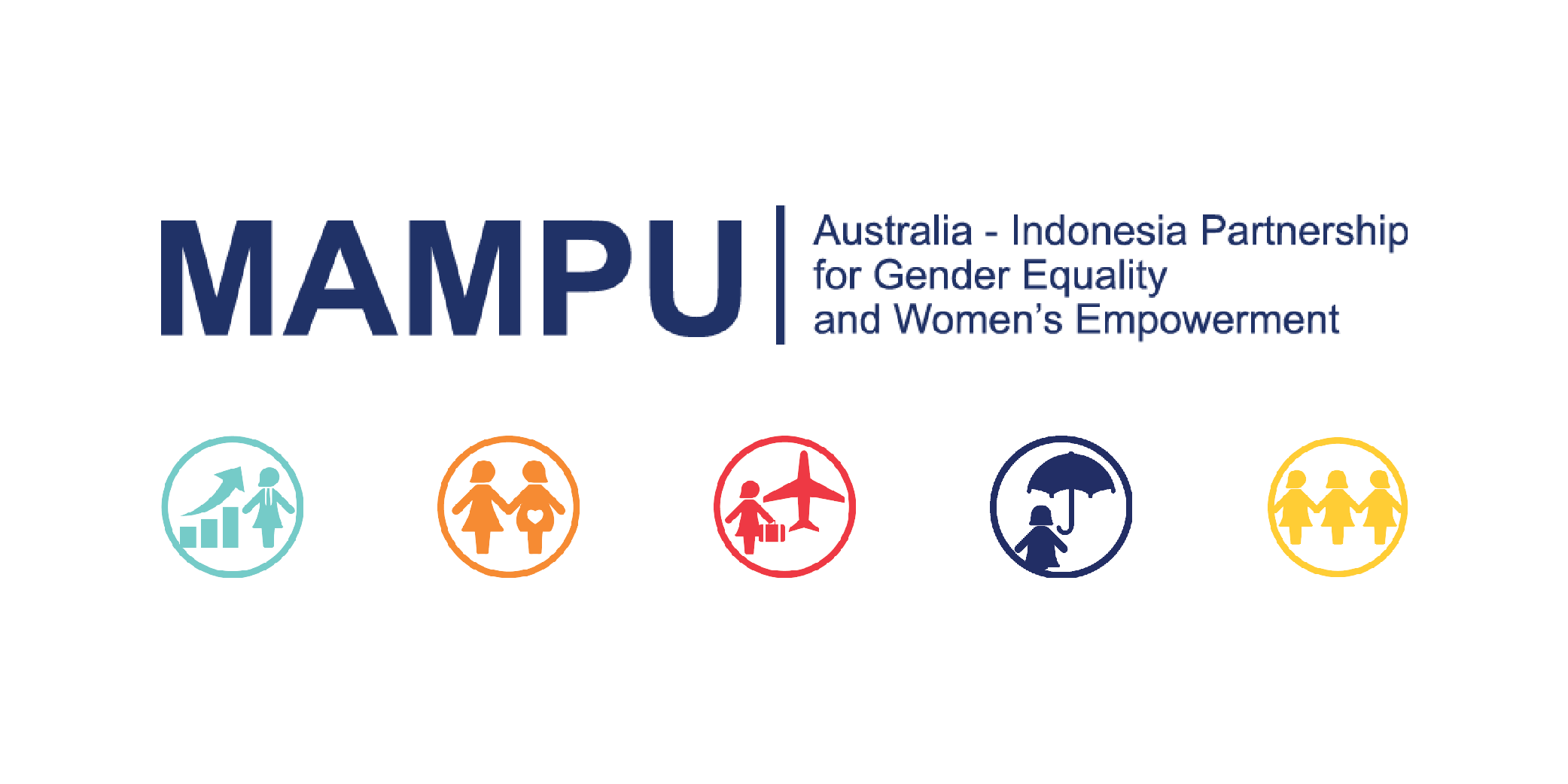
Being Independent in Food Security and Joint Ventures for Common Welfare
31 December 2017Author: admin
The number of women heads of household in Nusa Tenggara Timur (NTT) is growing as more husbands migrate to other regions in the country or abroad. Most of them do not return and do not provide for their wives and children’s needs at home. This situation forces the women who automatically become head of the family to take on responsibilities, both to support themselves and also their children.
There are many government and non-governmental organisation programs that operate in villages in NTT, one of them is Kolipadan Village, Ile Ape Sub-district, Lembata District. The assistance provided is mostly for short-term needs, such as rice for the poor, cash loans with interest, and physical development such as roads and rainwater collection. Assistance like this tends to make most people inert, less creative and dependent on the help. After the relief is exhausted, they will return to being helpless again.
In response to these circumstances, PEKKA (Women Heads of Household), an organization whose work is spread all over Indonesia, took the initiative to start cadres group as a forum to empower women heads of household. Bernadete Deram (45) was the first facilitator in PEKKA since joining in 2001. She dealing with organisational problems and giving group consultation. She then served as coordinator of PEKKA group for East Flores and Lembata Districts. She has carried out her duties full of enthusiasm. It is no wonder that the groups grew and members who have joined PEKKA in her area did so of their own accord, based on the needs for science, information and links. Bernadete and her team often provide various training such as on paralegal issues, bookkeeping, and restoring the understanding of unity, collaboration, and food security.
Significant changes are visible after the MAMPU Program was implemented by PEKKA. MAMPU facilitates regular discussions, provides a deeper understanding of self-reliance and brings out creativity. The discussions held by MAMPU also provide an understanding that the rights of women heads of household are equal to those of males. They are entitled to be legally recognised and have their own family register for the benefit of all legal matters. Bernadete said that, up until now, patriarchal culture is still very strong in NTT, including in her work area. Therefore, the majority of women heads of household do not get recognized.
“When there is a discussion, we now always involve the local government and the traditional community chief so that the flow of information is not in one direction only. This includes understanding of food security and the importance of the family register and other things relevant to the women heads of household,” said Bernadete.
Hasna Bengang (48), a PEKKA member who serves as secretary of the Kabenasipe group, feels there have been good changes after participating in the MAMPU discussions which are held regularly, four times a month.
“The MAMPU program has really given me a better life. This kind of aid—which gives us understanding—means more than rice for the poor, money or other things. This is because the provision of understanding means I get more than what I need. I have become full of enthusiasm for work. An income is always there,” said Hasna.
You could feel how sincere she was as she explained that the MAMPU Program strengthens PEKKA’s mission, such as food security. Before, they bought basic foodstuff from outside the village, but now they have started planting the land with corn, mung beans, cassava, bananas, and others. They have even built a communal barn in case it is needed for their community’s stockpile. Thus, their revenue circulates in the village and the women heads of household always have solutions for meeting their daily needs.
After her husband left, Fajaria Jari (42), who is now head of the Kabenasipe Group, at first often lament her fate and almost fell into despair. After joining PEKKA and participating in the MAMPU Program, she stopped dwelling on her circumstances and feeling bad about herself.
“Life must go on. My daughter depends solely on me. I do whatever it takes to support us. I sell fish, and mung beans, I go fishing, I weave. I do it all for my child. Now, my daughter is studying at the Academy of Midwifery in Jayapura, she will graduate in four months.” Fajaria told her story without hiding her emotion.
Fajaria is the chairperson of the community-based savings and loans cooperative and insurance in the Kabenasipe Group. She explained that this program helps people to become unburdened by loans with high interest. They apply the principle of mutual aid. Each member, who number 25 in total, has to deposit a mandatory savings of IDR 50,000 once. Further deposits range from IDR 1,000 to 5,000 for voluntary savings, depending on their financial ability. Then, each member should then see what her needs are and these needs will be met from their savings in the form of groceries. As for insurance, members deposit IDR 15,000 per year. If someone is sick, she is entitled to hospitalisation expenses up to IDR 400,000.
Maria Barek (58), member of the Gawe Gere group in the village of Beutaran in the Ile Ape Sub-district, saw changes after attending PEKKA gatherings and participating at the MAMPU Program’s regular discussions.
“My mind is no longer frozen and bogged down in the life problems I experiences after my husband left. By participating in the activities of Gawe Gere, I have so many friends to talk to and can do a lot of useful things. These include working in the garden together, cooking and eating together,” Maria said.
Maria Barek’s statement is corroborated by Yustina Ola (46), Treasurer of Gawe Gere. According to her, all group members are empowered.
“Nobody is unemployed and on average they work optimally and have managed to turnBeutaran into the largest local producer of mung beans. All of this is the result of cooperation and mutual assistance between members.” Yustina said.
Move to the Tanjung Batu village in Ile Ape Sub-district, the MAMPU program here gave a broad understanding of how to optimize livelihoods. Through the Kasih Ibugroup, the program helps empower group members to find alternatives in the search for income.
Mariam Mahmud (53), chairperson of the group, stated: “Regular discussions with MAMPU enrich the thinking of each member. We have become more critical and managed to create innovation in working. For example, in our joint weaving business, we emphasize the use of natural materials, from raw materials to the dye. Although the process is long, it has become our commitment. The aim is that we have our ownunique selling point,” Mariam said.
Mariam also explained that restoring the tradition of weaving with natural materials is also carried out by young people as a regeneration effort. In addition to weaving, sources of income for the Kasih Ibu community members also include planting corn, mung beans, peanuts, and fishing. During periods of food shortage, weaving is an alternative activity for them. So, there are always solutions in the search for livelihoods. The savings and loans cooperative, along with the communal barn and community health insurance in the Kasih Ibu community, have the same procedures as in the Kabenasipe and Gawe Gere communities.
Written by: Ani Berta (PEKKA)




